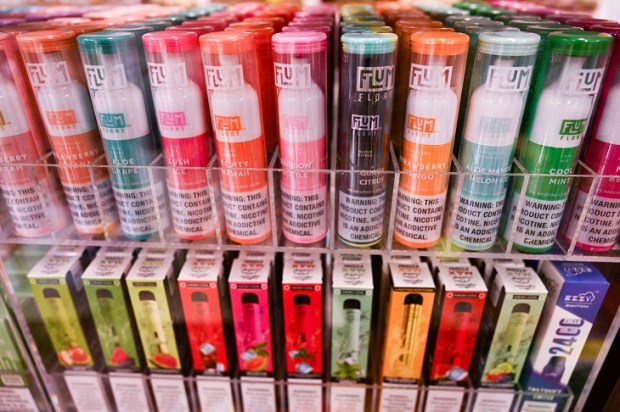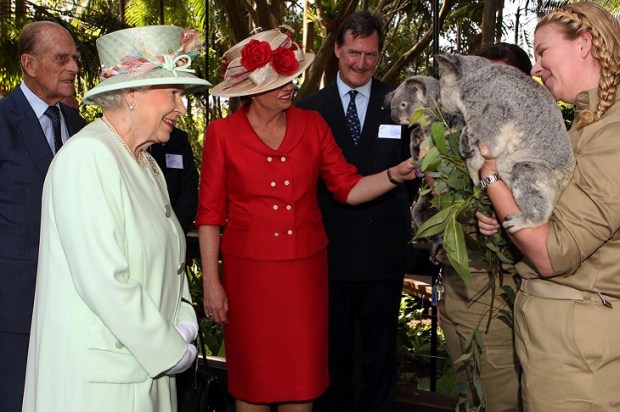Embattled Health Department head, Martin Bowles’s, Senate estimates performance last week is a gift that keeps on giving.
As we reported just last Tuesday, having been caught out by leaked documents and interrogating senators as defying the wishes of his own Minister, Greg Hunt, and having landed the government he serves in a pool of steaming Mediscare merde by pursuing a hospital funding policy anathema to the elected government of the day, it seems Bowles also has been a tad economical with his accuracy in making assertions on public health policy to the Senate.
Asked by Liberal senator Linda Reynolds about the international state of play on the legalisation of nicotine-containing e-cigarettes, Bowles replied he had just returned from a World Health Organisation meeting where he met with officials of some ‘like-minded countries’ on tobacco control, including about vaping and what are called, prosaically, Electronic Nicotine Delivery Systems. In framing her questions, Reynolds noted, accurately, how prevalent vaping is on the streets of Britain.
Bowles responded to the senator:
Of the seven countries (whose representatives he met) which have this conversation, New Zealand is the only one moving in that direction (the legalisation of nicotine vaping). Most are in the same place that we are. There are the UK, Canada, New Zealand and a range of other countries… there is a lot of concern over it.
Certainly the WHO is utterly against nicotine vaping, and wants member states to crack down harder on it, not legalise and liberalise. But when it comes down to the nation-level specifics he cited, other than his acknowledging the fact that New Zealand is well-advanced in legislating to allow nicotine vaping, the reality is somewhat different to what he told the Senate:
- Canada has announced similar moves to New Zealand and legislation is currently passing through the Canadian parliament. The governments of both countries have concluded that nicotine vaping with sensible regulation is better than prohibition, and offers a harm reduction alternative to deadly combustible tobacco.
- The United Kingdom government and the National Health Service have positively embraced nicotine vaping as a harm reduction and quit smoking option for smokers finding it hard to quit. In 2015 then prime minister David Cameron lauded vaping as a ‘legitimate’ aid to help people quit smoking and, had the latest Drug and Alcohol Survey update come out earlier last week (on which he presumably was already briefed), Bowles could have mentioned smoking rates in vaping-friendly Britain have declined significantly in recent years while Australia’s have flatlined – despite cigarette plain packaging and open hostility to vaping.
- The European Union’s Tobacco Products Directive, legislative guidelines applying in member states (including Britain for now), permit the legal sale of nicotine-containing vaping liquid.
- The US Food and Drug Administration has suspended action to implement Obama-era policy that ‘deems’ vaping to be treated identically to tobacco smoking for regulatory purposes.
Instead, Bowles gave the impression that governments in the UK, Europe and North America share the same hostility to vaping as Australian bureaucrats and public health advocates and organisations viscerally opposed to it, and to whom the ‘deeming’ position being walked away from in the US effectively is the only regulatory way to go.
Nobody anywhere is saying vaping’s risk-free, and all but the most outspoken libertarians agree vaping should be regulated prudently, but the evidence continues to mount that it is far safer to direct and passive users than tobacco smoking. Unlike Australia, however, comparable jurisdictions are willing to give vaping the benefit of the doubt in the cause of harm reduction. Bowles ignored that simple reality because it didn’t fit his fairy tale.
That, just two days later, a public inquiry into vaping was announced by the House of Representatives standing committee on health, ageing and sport, chaired by a government MP on a reference from none other than health minister Hunt, makes Bowles’s selective assertions to the estimates committee not only dodgy, but again defiant of his minister.
If Secretary Bowles didn’t actually mislead the Senate in his response to Senator Reynolds, he came very close. Regardless, he treated senators as ignorant and gullible mugs. Mr Bowles not only looks like a Prussian Junker, he seems to have the same dismissive attitude to contrary opinions so characteristic of the old Prussian aristocracy.
If Greg Hunt and Prime Minister Malcolm Turnbull still need more evidence that they have a serious problem at the top of a perennially problematic but politically-crucial department, they should add this exchange to the Bowles dossier.
As well as being a Spectator Australia regular, Terry Barnes is a part-time fellow of UK think tank, the Institute of Economic Affairs, looking at Australian nanny state regulation around tobacco, vaping and alcohol.
Got something to add? Join the discussion and comment below.
Got something to add? Join the discussion and comment below.
Get 10 issues for just $10
Subscribe to The Spectator Australia today for the next 10 magazine issues, plus full online access, for just $10.

























Comments
Don't miss out
Join the conversation with other Spectator Australia readers. Subscribe to leave a comment.
SUBSCRIBEAlready a subscriber? Log in